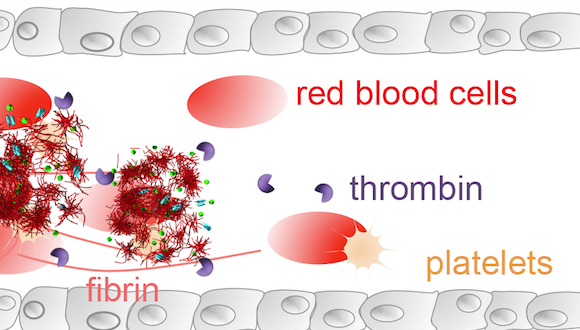Nanocapsule dissolves blood clots in minutes with no side effects

A nanocapsule that dissolves blood clots very fast and can be administered without specialised equipment promises to be the next revolution in treatment of heart attacks and strokes, says a study.
The capsule with the drug can be administered by paramedics in emergency situations saving much time. It acts within minutes to dissolve the clot, say the researchers.
"We've created a nanocapsule that contains a clot-busting drug. The drug-loaded nanocapsule is coated with an antibody that specifically targets activated platelets, the cells that form blood clots," said lead author of the study, Professor Christoph Hagemeyer, Head of the Vascular Biotechnology Laboratory at Baker IDI Heart and Diabetes Institute.
The capsule is coated with an antibody that specifically targets activated platelets - the cells that form blood clots.
On locating them, the drug is released from the capsule. This is done by the capsule layers dissolving the thrombin released during clotting and releasing the enclosed drug.
"Once located at the site of the blood clot, thrombin (a molecule at the centre of the clotting process) breaks open the outer layer of the nanocapsule, releasing the clot-busting drug. We are effectively hijacking the blood clotting system to initiate the removal of the blockage in the blood vessel," said Hagemeyer.
Unlike current drugs, the nanocapsule has no side-effects. It does not target older clots and lead to bleeding, but is only released into the area where the clot is growing fast and blocking the blood vessel.
Co-author Professor Frank Caruso from the Melbourne School of Engineering said: "About half of the people who need a clot-busting drug can't use the current treatments because the risk of serious bleeding is too high."
The work is published in the journal Advanced Materials.
Blood clots form in response to an injury and are also beneficial, stopping potentially dangerous bleeding. However, blood clots in lungs, heart and brain require medical attention or can lead to strokes and heart attacks.
© Copyright IBTimes 2025. All rights reserved.





















